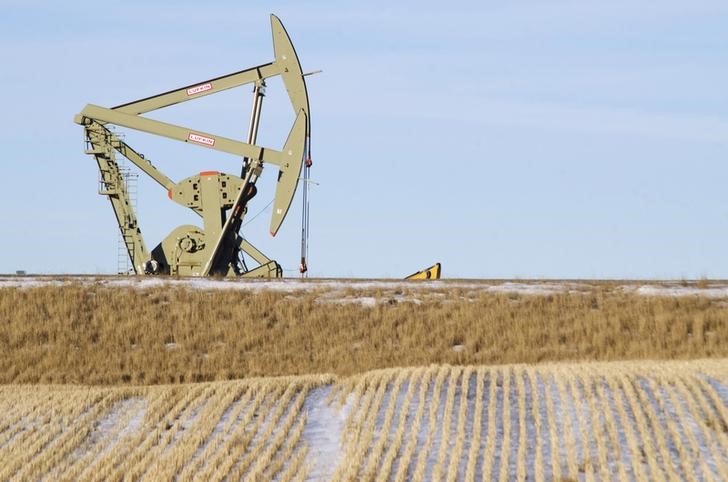(Bloomberg) -- Oil barely squeaked out a second day of gains in a volatile session, withstanding risk-off sentiment in broader markets as traders sought refuge in commodities as a hedge against inflation.
West Texas Intermediate futures closed up 0.3% after climbing as much as 2.3% earlier on Thursday in New York trading. Economic data showed that U.S. inflation surged to a four-decade high, prompting Federal Reserve Bank of St. Louis President James Bullard to advocate for a supersized rate hike. While equities declined on the day, oil is viewed as a safer bet amid rising cost pressures.
“When you have an inflationary period, that’s generally good for commodities,” said Stewart Glickman, energy equity analyst at CFRA Research in New York. “As a physical commodity, oil tends to hold its value better. Oil and gold are now seen as safer havens while other assets are being inflated out.”
Along with the macro-economic factors that were driving volatility, investors are keeping a keen eye on talks aimed at reviving a nuclear agreement with Iran, which could add more crude to the global market. A deal that addresses the concerns of all sides is in sight, White House Press Secretary Jen Psaki said Wednesday.
Geopolitical tensions in Eastern Europe are also being monitored as the U.S. and its allies warned of a buildup of close to 130,000 Russian troops near the Ukrainian border. Moscow has repeatedly denied it plans of attacking its neighbor.
Oil’s 2022 rally had cooled earlier this week after a run of gains propelled prices to the highest since 2014. Stronger-than-expected demand and a series of supply outages helped to tighten the market, exacerbated by the inability of OPEC+ to meet its targeted output pledges. Still, an Iran nuclear deal would pave the way for an increase in official crude exports from the OPEC producer, alleviating some market tightness.
“In the short term, the oil price direction will be a battle between a very tight physical market and potential return of Iranian barrels amid strong momentum in the nuclear negotiations,” said Helge Andre Martinsen, senior oil market analyst at DNB Bank ASA.
Read: U.S. Says Nuclear Deal in Sight, Deadline Looms: Iran Snapshot
U.S. crude inventories at the key Cushing storage hub in Oklahoma fell for the fifth week to the lowest level since November, according to data from the Energy Information Administration. The four-week average for supplied oil products -- a gauge of demand -- climbed to a record last week.
Buying in U.S. timespreads -- or the difference between contracts for immediate delivery and those in the future -- picked up thanks to a decline in stockpiles at Cushing, dealers said. Inventories at the storage hub fell by about 1.7 million barrels between Friday and Tuesday, according to traders, citing data from Wood Mackenzie.
©2022 Bloomberg L.P.

